Are you stuck wondering whether to install hardwood or vinyl floors? In this article we are providing several differences between vinyl and hardwood.
Quick answer:
Hardwood flooring solutions are obtained from natural trees vinyl flooring is mainly from polyvinyl chloride synthetic fibers. If you want a cheap and easy to install as well as water-resistant flooring solution, then you should go for the vinyl. But if you want a natural, elegant, high-end flooring solution, then the hardwood is the best for you.
Table of Contents
What is Vinyl Flooring?
Vinyl flooring is a popular artificial flooring option. When creating it, one sandwiches a few layers of various materials, including Polyvinyl chloride (PVC). Then, they print the vinyl with natural hardwood markings.
The two most common types of vinyl flooring are vinyl roll and Luxury Vinyl Tiles (LVT). Although they come with the same materials, the process of manufacturing them differs, explaining why they have varying effects.
Most homeowners today choose vinyl flooring over other types of flooring because of its affordability. It’s also somewhat durable and effortless to maintain.
You should not confuse vinyl flooring with laminate flooring. Despite these two having similar layers, they have different materials and features.
What is Hardwood flooring?
Hardwood flooring is a lasting, natural type of floor surface covering option made with different wood species—these range from maple, oak, and cherry to mahogany, ash, and walnut. There’s no need to mix wood with other materials when making this flooring.
Homeowners all across the world have been using hardwood flooring for centuries. This could be attributed to its versatility and undeniable visual appeal. It is also convenient for those interested in a more authentic flooring option.
In addition, hardwood flooring enhances a property’s value. This makes it your best go-to option if you desire to make a massive profit from your upcoming home sale.
Vinyl Flooring Vs Hardwood Comparison Chart
| Feature | Vinyl Flooring | Hardwood flooring |
| Material | Polyvinyl chloride (PVC) | Hardwoods |
| Installation | Easy and inexpensive | Complicated and costly |
| Aesthetics and Appearance | Not as appealing as hardwood flooring | Is incredibly beautiful |
| Maintenance and cleaning | Easy to clean and maintain | A bit difficult to maintain/high-maintenance |
| Repair | Not easy to repair | An experienced expert can repair it |
| Durability | Less durable | Highly durable |
| Water resistance | 100% resistant | Not water resistant |
| Radiant heat | Can’t damage it | Damages it |
| Price | Affordable | Expensive |
| Home Reselling | Doesn’t impact the resale value | Increases the resale value of a home |
Vinyl Flooring Vs Hardwood: The Main Differences
Are you looking for excellent flooring material for your home? Vinyl and hardwood should top your list of options. But you still have to choose one of them.
Knowing these ten differences between vinyl and hardwood flooring could help you to make the best pick.
1. Material
Vinyl flooring makes use of different materials, including polyvinyl chloride (PVC). On the contrary, hardwood flooring is made from natural trees from forests. It could be one type of hardwood or several of them.
For instance, one could combine maple and oak to make long-lasting hardwood flooring.
2. Installation
Installing vinyl flooring is way easier than hardwood flooring. One can comfortably and safely install the former even if the floor is not level. It doesn’t even matter if they’re doing it onto an old flooring layer, concrete, or wood. All they need is a clean surface.
Installing hardwood flooring is more successful if the floor is level. This prevents future complications should the wood start to bend over. During this process, one also has to create an expansion gap on the floor’s perimeter so that the boards can comfortably contract and expand due to moisture exposure.
3. Aesthetics and Appearance
Hardwood and vinyl flooring lack the same appearance or aesthetic appeal. Hardwood floors are manufactured from various solid woods. Hence, they feature beautiful natural tones that make them more attractive than vinyl flooring.
All hardwood floors don’t have the same colors. They could come in black, gray, beige, brown, and reddish hues. The color of this type of flooring depends on the wood the manufacturer used to craft it.
Nowadays, manufacturers dye the exteriors of different vinyl planks so that they resemble hardwood flooring. After installation, it might not be easy to distinguish the two flooring materials.
Hardwood flooring is louder than vinyl because it lacks a rubberized backing layer.
4. Maintenance and cleaning
As many homeowners can attest to, it is more complicated to maintain and clean hardwood flooring than vinyl. You have to dust hardwood floors regularly to avoid damage from scratches. You also need to use various products meant to enhance their durability by protecting them from moisture damage.
With vinyl flooring, you only require a few cleansers for efficient cleaning. Sweep the floor frequently. You could even deactivate the brush feature when vacuuming this flooring.
Feel free to use rugs to clean vinyl flooring. This prevents wear and tear and guarantees prolonged existence. If your vinyl floor starts looking dull, purchase wax-free polishes meant to restore its shine.
5. Repair
If your hardwood flooring becomes damaged, you can hire a professional to repair it through refinishing and sanding. However, vinyl flooring doesn’t give you this option. Once it suffers damage, the best you can do is replace it to achieve the initial attractive look.
6. Durability
Although vinyl flooring can last for a while, it’s not as durable as hardwood flooring. Anyone can easily cut this material. It’s also prone to dust damage.
Note that you must take the best care of hardwood flooring for it to outlast vinyl. Like the latter, it has its downsides too. For instance, animal claws, high heels, and dust can affect its quality.
Hardwood flooring is also susceptible to moisture damage, unlike vinyl flooring. This makes it unsuitable for bathroom and kitchen areas.
Several factors affect the durability of hardwood flowing. Examples include the type of hardwood that makes it, if it is installed properly, and the condition of the floor you install it onto.
7. Water resistance
One of the significant perks of vinyl flooring is that it is 100% waterproof. You can wash this flooring as many times as possible without worrying about water damage. When your kid spills drinks on it, mop it, and it’ll be as good as new.
On the other hand, hardwood flooring is not waterproof. Continuous moisture exposure can damage your new hardwood floor within a short time. Replacing or repairing it could cost you a fortune.
If water damages your hardwood flooring, call a professional to replace or repair it. Unless you have experience, you may be unable to do it right. This could lead to more damage or harmful mold growth after a while.
8. Exposure to Radiant Heat
Should you expose your hardwood flooring to radiant heat, it might be destroyed. On the contrary, radiant does not damage vinyl floors.
9. Price
The cost of purchasing and installing hardwood flooring varies from that of vinyl flooring. Today, the price of the latter per square foot ranges between $2 and $7. It all depends on where you buy yours from, plus the size you need.
Vinyl flooring doesn’t require any nails, adhesives, and vapor barriers. You could even install the floor without the help of an expert. This makes it a cost-effective option for homeowners who wish to spend as little as possible on the flooring installation process.
Buying and installing hardwood flooring is more expensive than vinyl flooring. The price of hardwood flooring today could be between $5 and $10 per sq. foot. The exact cost depends on factors such as the type of wood that makes the flooring, its brand, and the store you visit.
After purchasing hardwood flooring, you still have to incur additional installation costs. Most homeowners don’t know anything about installing hardwood floors. This means that they have to hire a competent and experienced contractor to do it.
Take your time when looking for a contractor for this job. Most of these experts take advantage of the fact that most people lack knowledge regarding hardwood floor installation. Hence, they charge unreasonably high rates.
Also, remember that even after hiring an affordable contractor to install your hardwood floors, you’ll need nails, vapor barriers, and other supplies.
10. Home Reselling
Hardwood flooring increases the value of a home. It’s more durable, and it comes with timeless beauty. Homebuyers are willing to pay a lot for it because they know the perks they’re set to enjoy.
This is not the same case with vinyl flooring. If you’re reselling your home with vinyl floors, you might not rake in that much for it. This is because this type of floor is less durable and easier to install. When compared to hardwood flooring, it’s also less attractive.
Vinyl Flooring Pros and Cons
Pros of Vinyl Flooring
- Cheap to purchase
- Effortless installation
- Easy to maintain
- Impervious to moisture
- Usable with radiant heat
Cons of Vinyl Flooring
- Less durable
- Tricky to repair
- Doesn’t affect property resale value
Hardwood Flooring Pros and Cons
Pros of Hardwood Flooring
- Extremely durable
- Looks stunning
- Increases a home’s resale value
- Easy to repair
- It’s a renewable resource
Cons of Hardwood Flooring
- Costly to buy and install
- Complicated to maintain
- Prone to moisture damage
- Susceptible to radiant heat damage
Conclusion: Should I Install Vinyl Flooring or Hardwood?
The flooring solution you should install depends on an array of factors, including; your budget, insulation, durability, and materials. Both vinyl and hardwood floors have their advantages and disadvantages and you should know them before making your final choice.
Also, consider the type of flooring that suits your current situation.
For instance, hardwood flooring is visually appealing and highly durable. Even so, it is costly. If you don’t have enough finances, this flooring might not be the best option for you.
Suppose you have the money but aren’t willing to do what it takes to maintain the hardwood floor; it is still not ideal for you.
You also have to think about the home area that needs the floor. If it’s your kitchen and bathroom, choose vinyl. Since it is waterproof, you won’t have to replace it any time soon.
Certainly, if money is not a problem for you, install the durable, high-end hardwood floor. But, if you’re looking for a quick fix at the lowest price, use the vinyl flooring material.
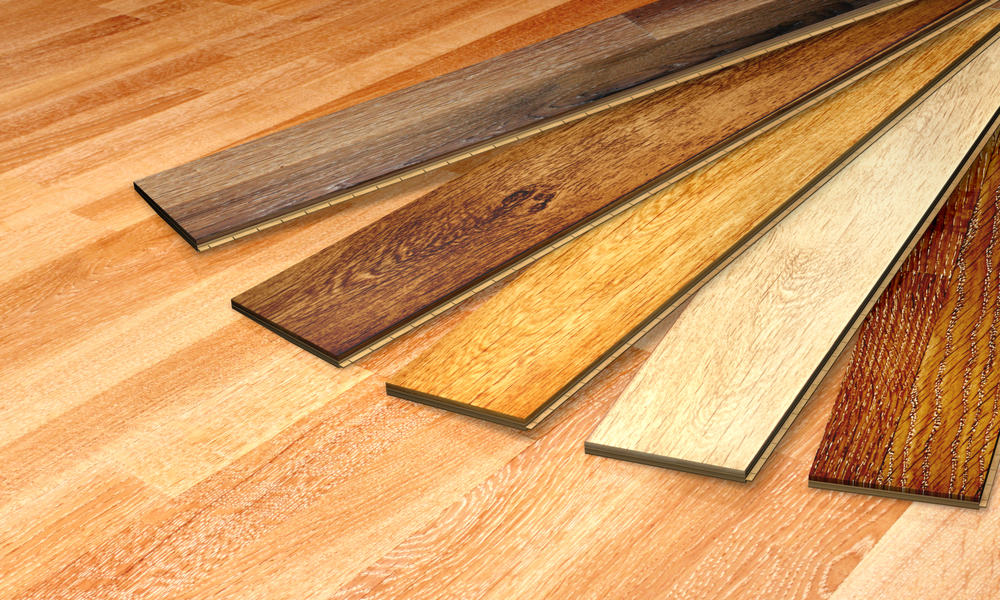

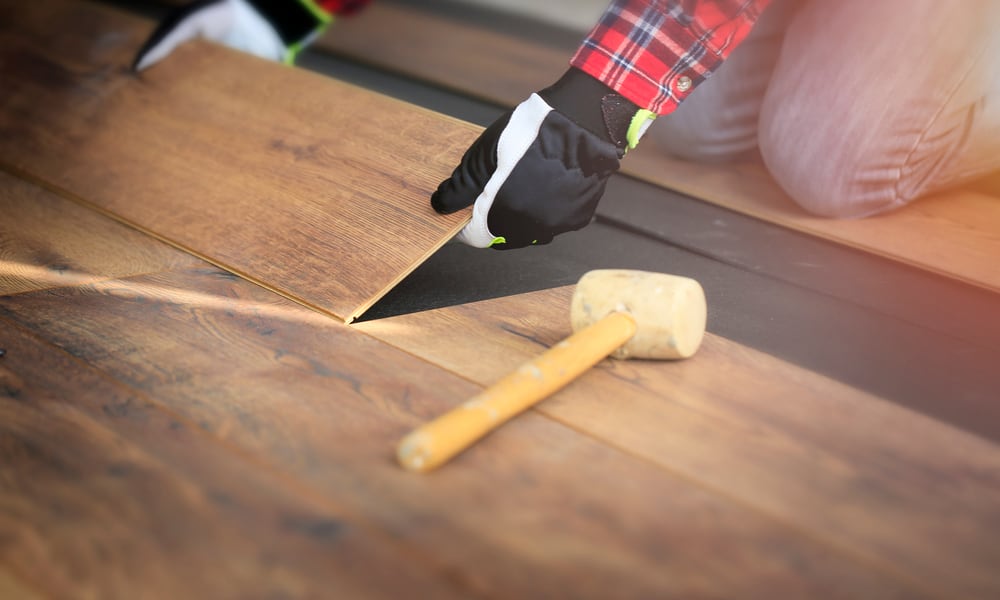
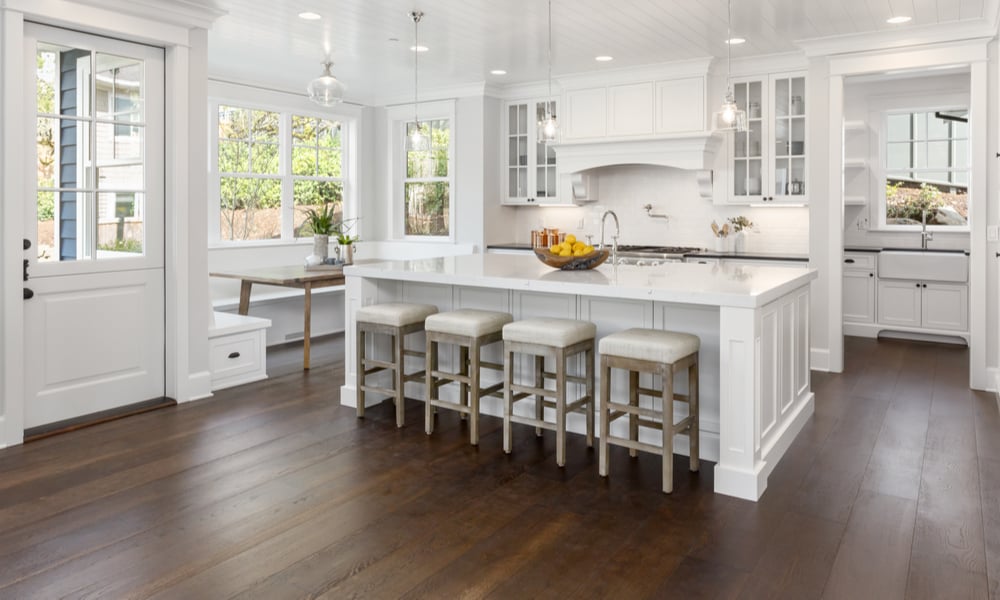
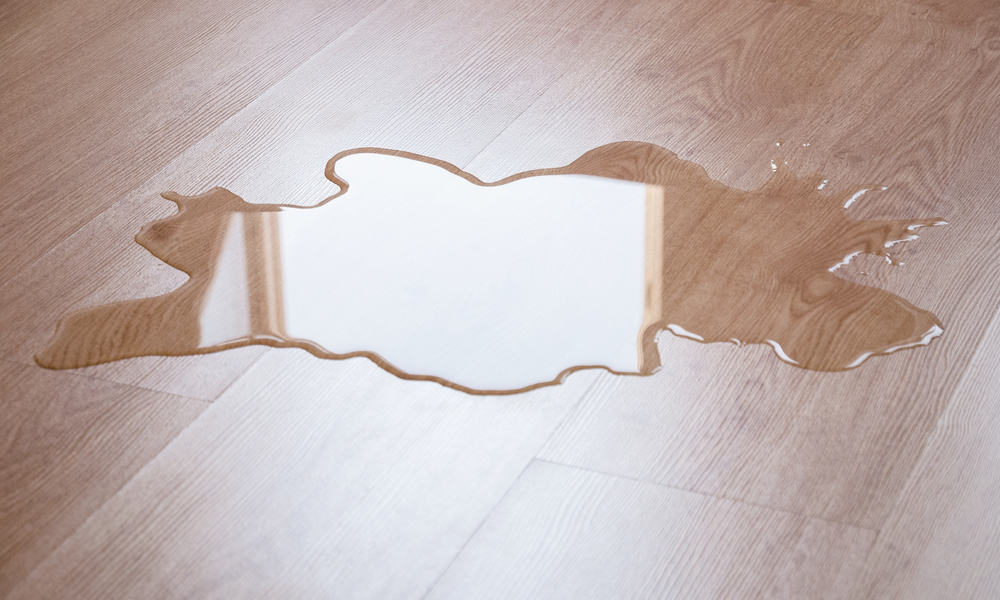

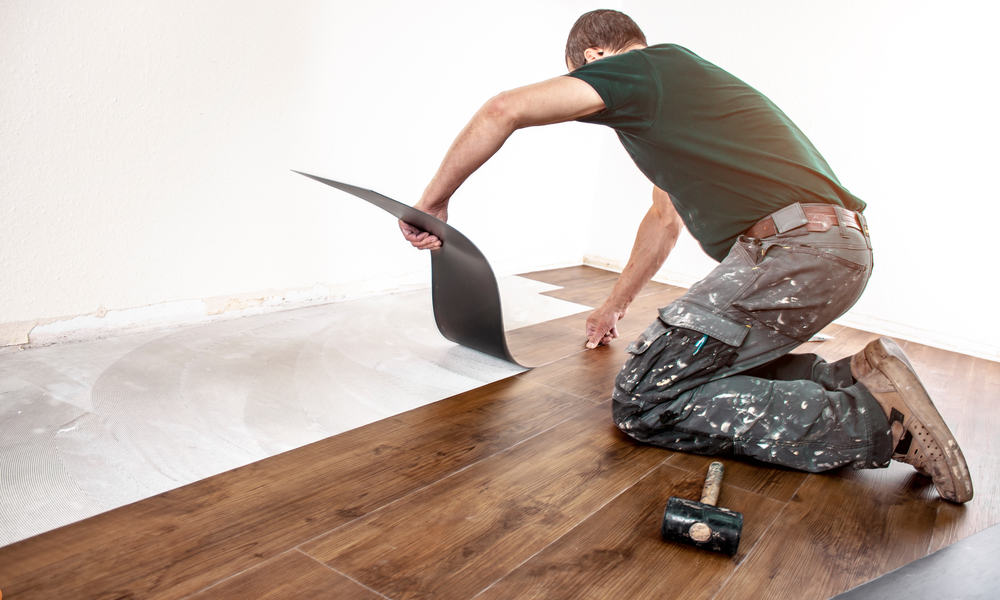
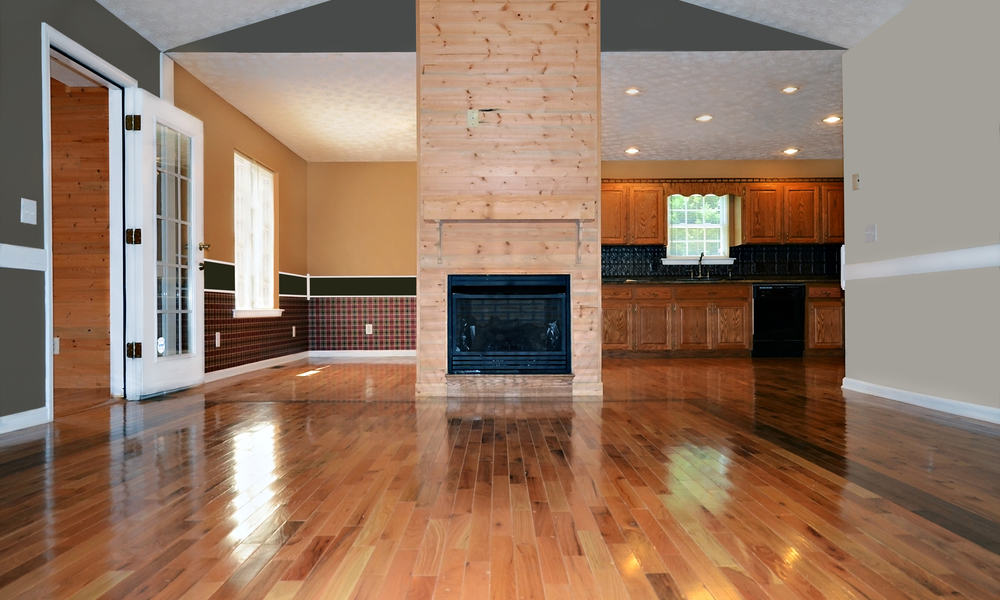
Thank you for mentioning how much value hardwood floors add to a home and how durable they are. I am building a new custom home this year and choosing the details that will make it my own. I will find a reputable hardwood flooring service in my area for this.